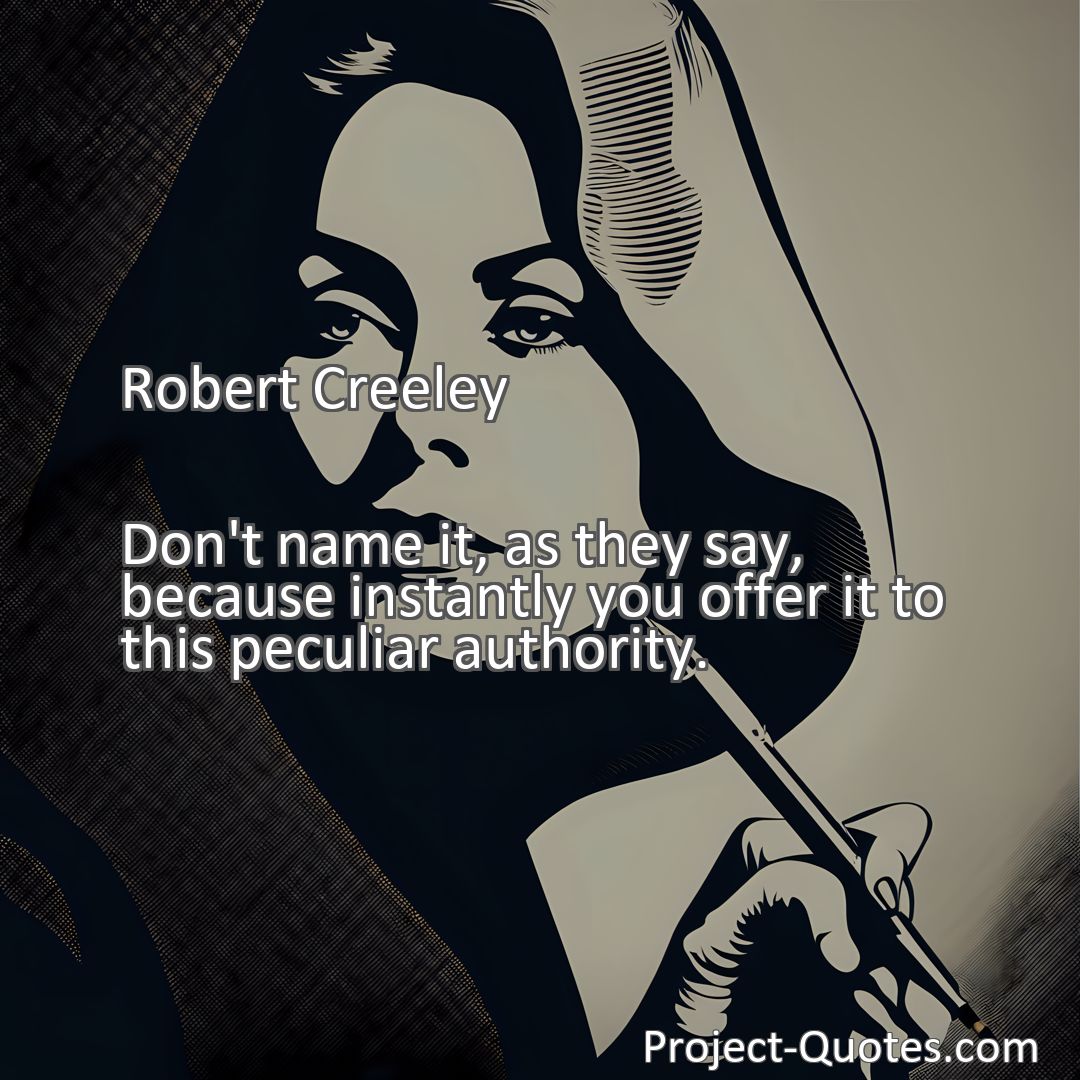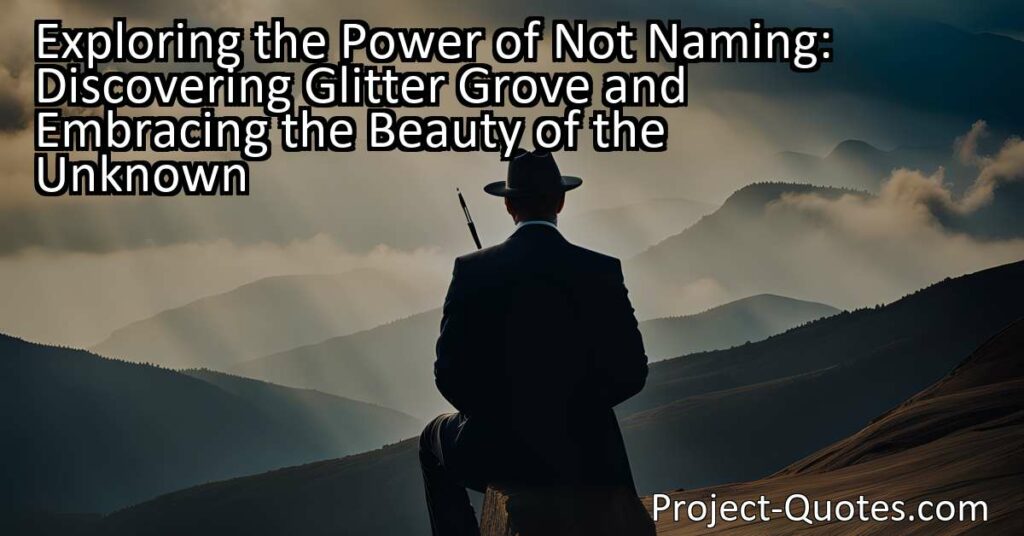Robert Creeley
Have you ever discovered a secret spot in the woods that felt magical? Imagine if you gave it a name, like “Glitter Grove.” By naming it, you share its power and beauty with others, but not naming it keeps it all to yourself. The choice between sharing and keeping the mystery alive is like the unexplored forest waiting to be discovered.
Table of Contents
Hello there! Today, were going to chat about a very interesting thought that comes from a smart writer named Robert Creeley. He once said something that might make you scratch your head a little bit. He said, Don’t name it, as they say, because instantly you offer it to this peculiar authority. Now, that might sound a bit mysterious, but lets break it down and see what we can discover from his words.
Robert Creeley was a poet, and poets have a special way of seeing the world. They often notice things that the rest of us might pass by. So, when Creeley talks about not naming something, hes diving into a deep pool of ideas about language, power, and how we understand the world around us.
To begin with, think about the last time you got a present that was wrapped up, maybe for your birthday or a holiday. That wrapping paper and the bow on top it all kept you guessing, right? You didnt know exactly what was inside until you tore off the wrapping and looked at it. In a way, names are like wrapping paper for ideas. When we name something, we wrap that idea up in a package that everyone can recognize. But Creeley suggests that maybe, just maybe, some things are better off unwrapped and unnamed.
Now, this peculiar authority he mentions could mean a bunch of different things, but heres one way to think about it: when you give something a name, youre also giving a certain power over it to whoever knows that name. For example, lets say you discover a secret spot in the woods where the sunlight streams through the leaves in the most magical way, and you decide to call it “Glitter Grove.” Once you share that name with others, they can chat about “Glitter Grove,” tell stories about it, and it sort of becomes its own thing thats not just your secret spot anymore. By naming it, youve handed over some of the power it had as a secret and shared it with others.
But not naming things can be a bit like keeping that magical spot in the woods all to yourself. Its still there, and its still special, but without a name, it’s a bit harder for people to talk about it and maybe change what it means to you.
Lets look at it from another angle. Imagine youre drawing a picture, and instead of deciding right away that its going to be a picture of your dog or a house or a starry night, you just start drawing lines and shapes wherever your pencil takes you. In that moment, your drawing doesnt have a name, and it can be anything you want. Once you name it, though, lets say you decide its definitely a dog, then everyone who sees it will think dog as soon as you tell them. But what if it could be more than just a dog? What if it could be seen in different ways by everyone who looked at it?
Sometimes, not naming things can keep our minds open to many more possibilities. Its like having a treasure chest of ideas where everything is waiting to be discovered, and nothing is just one thing.
Creeley was really into the power of creativity and the beauty of ideas that are still taking shape. By suggesting we dont name things, hes inviting us to explore the world with our imaginations wide open. Its a bit like looking at clouds in the sky. You might see a cloud that looks like a ship to you, but the person next to you sees a castle. If you dont name it, both of you can enjoy your own visions without being told its just a cloud and nothing more.
Its important, though, to understand that names can also be super helpful. They let us communicate with each other, find things in a library or on the internet, and understand lots of information really quickly. But, like with all things, its all about finding a balance. Knowing when to use names and when to let things be a little more mysterious can make life more interesting.
When you’re talking to your friends about the latest song you heard and you can’t remember the name of it, sometimes that can lead to a fun guessing game where you hum the tune or describe the video until someone figures it out. That moment before you remember the name is filled with possibilities, laughter, and creativity.
Robert Creeleys advice to not name something isnt about never using names or forgetting how important they can be. Its more like a secret tip to keep your mind like a sky full of stars full of wonder, infinite space, and the beauty of the unknown. Its a suggestion to not rush to label everything you encounter, but rather to enjoy the mystery, let your imagination play, and appreciate things just as they are, even if just for a little bit.
So next time youre out on a walk, or you see something cool, or you come up with an idea, imagine not giving it a name right away. Think about how that might make the moment feel different, how it might spark your creativity, or how it might keep your mind as open and free as a wild, unexplored forest. And remember, while names are tools that help us understand and share our world, they aren’t the only way we experience all the wonders around us.
I hope this quote inspired image brings you hope and peace. Share it with someone who needs it today!


